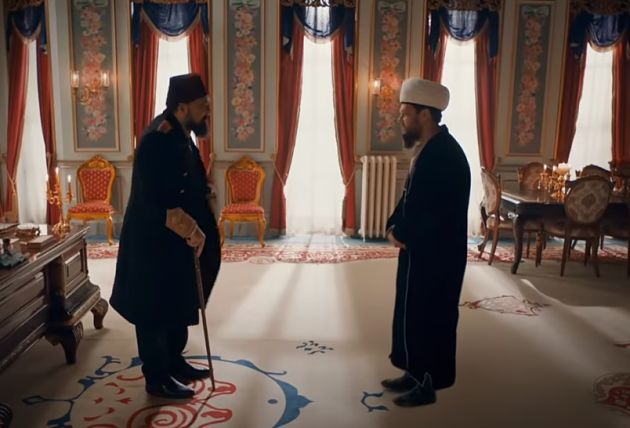The debut of Kazan actor Bulat Mubarakov in the new series “Right to the Throne”, which portrays the Russian mufti of the early 20th century, Muhammadjar Sultanov, and the case of Alexei Navalny – is there anything in common? At first glance, it may seem absurd, provocative, and even upsetting to those involved. But let’s take a closer look.
In this story, the Russian mufti was received by the Ottoman caliph, the ruler of the righteous Abdul Hamid II, and may Allah forgive them both, who inquired about the situation of Russian Muslims, whether they were oppressed in their homeland. In response to the Mufti’s words, “Thanks to you, the Russian authorities do not prevent us from practicing Islam,” the Caliph said with satisfaction, “We have understood well how to treat Muslims.
In reality, if we compare this with real life, we should note that the situation of Russian Muslims at that time was far from ideal, and the ability of the Ottoman caliph to defend them was limited. But, to tell the truth, at that time there was someone who was perceived as the advocate of Muslims, including those who lived outside the Islamic state and the authorities of the states in which they lived. And even though this advocate could not guarantee their rights where they lived, Muslims knew that there was a country to which they could migrate, as was the case when a considerable number of Tatar, Bashkir, Caucasian, and Turkestan Muslims, including prominent public figures, migrated to the Ottoman Caliphate.
But let’s return to the present. This week, the European Court of Human Rights (ECHR), based on Article 39 of its rules, demanded that the Russian authorities release Alexei Navalny. Some may be outraged that among all the prisoners of conscience, the ECHR singled out only Navalny, ignoring hundreds of others, including Muslims who are in much worse conditions. Others, on the other hand, may smile at the fact that this request had no meaning – it was simply ignored and he remained in prison.
However, if we compare these two situations, we can see clear parallels. In both cases, the ability of a foreign center to protect those under its care in another country was limited and did not always have the desired effect. The difference between these situations is that in the first case, the international center was an Islamic one that tried to defend the rights of Muslims, while in the second case, it was a center that could conditionally be called European liberal, defending pro-European liberals.
It should be noted that this approach was not “chemically pure”. Just as Christians and Jews sought asylum in the Ottoman Caliphate, not only Muslims, the ECHR today often stands up for oppressed Muslims. But the choice of priorities is generally understandable, and it explains why the ECHR made this demand in connection with Alexei Navalny and not, for example, with Abdulmumin Gadzhiev.
All this makes us reflect on the fact that a century later, after the first story, there is a body like the European Court of Human Rights, but there is no Muslim equivalent that would also take care of the rights of Muslims, although the situation was the opposite then. Moreover, as seen from the example of the ECHR, it does not even require a single state – it is replaced in this situation by the European Union and the informal community of European countries that are not even part of it.
But the same Russia has the status of an observer in the Organization of Islamic Cooperation (OIC), which, similarly to the situation with the ECHR, should force it to consider such recommendations. However, the problem is that the OIC does not have such a body, and unlike the informal community of European countries, the informal community of Muslim countries does not deal with the rights of its people.
Returning to the question of Navalny’s still not being released on the demand of the ECHR, it should be answered that the difference between his situation and the situation of those who are imprisoned without such attention to them is obvious. Such a person is unlikely to be tortured in detention, as is the case with many unknown Muslim prisoners of conscience. And even if he is not released immediately, pressure may lead to his release later, as was the case with Mikhail Khodorkovsky. Therefore, such advocacy still makes sense and brings benefits.
Therefore, Muslims should at least try to do something similar. And the fact that in a growing Muslim country there are movies with such plots, in which real Russian Muslim activists are invited as actors, gives hope that this issue will be raised again.

